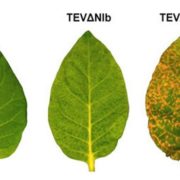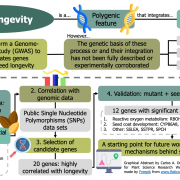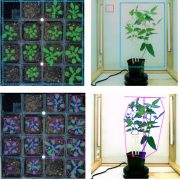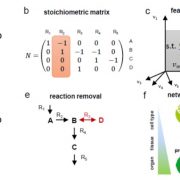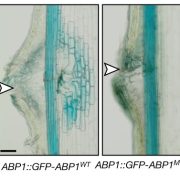Contribution of synthetic auxin conjugates to clonal propagation of woody species
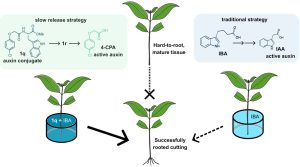 From food and energy to paper and timber, many industries rely on clonal propagation of tree species. Successful propagation of cuttings depends on adventitious rooting ability, which is known to decline with tree age and to be naturally low in many species of interest. Propagators therefore employ naturally occurring auxins, e.g. indole-3-butyric acid (IBA), which has limited positive effect and is often phytotoxic. Roth et al. tested the effect of synthetic auxin conjugates on the rooting ability of Eucalyptus cuttings. When applied with IBA, the 4-chlorophenoxyacetic acid (4-CPA) conjugate 1q particularly enhanced rooting success. Upon penetration into the cutting, 1q is transformed into 1r, which acts a slow-release source of the active synthetic auxin 4-CPA. Then, 1r is cleaved by ILL/ILR1 amido-hydrolases to release 4-CPA. Once released, 4-CPA, which evades the main auxin degradation pathway, can be transported by canonical auxin influx carriers, bind auxin receptors, and trigger adventitious rooting. When applied to other hard-to-root species, 1q often also enhanced their rooting success, even in older individuals. These results show that novel strategies based on slow release of improved auxin formulations can help overcome major roadblocks in clonal tree propagation, which is both key for industry and a crucial tool in reforestation. (Summary by John Vilasboa @vilasjohn) Nature Biotechnol.10.1038/s41587-023-02065-3
From food and energy to paper and timber, many industries rely on clonal propagation of tree species. Successful propagation of cuttings depends on adventitious rooting ability, which is known to decline with tree age and to be naturally low in many species of interest. Propagators therefore employ naturally occurring auxins, e.g. indole-3-butyric acid (IBA), which has limited positive effect and is often phytotoxic. Roth et al. tested the effect of synthetic auxin conjugates on the rooting ability of Eucalyptus cuttings. When applied with IBA, the 4-chlorophenoxyacetic acid (4-CPA) conjugate 1q particularly enhanced rooting success. Upon penetration into the cutting, 1q is transformed into 1r, which acts a slow-release source of the active synthetic auxin 4-CPA. Then, 1r is cleaved by ILL/ILR1 amido-hydrolases to release 4-CPA. Once released, 4-CPA, which evades the main auxin degradation pathway, can be transported by canonical auxin influx carriers, bind auxin receptors, and trigger adventitious rooting. When applied to other hard-to-root species, 1q often also enhanced their rooting success, even in older individuals. These results show that novel strategies based on slow release of improved auxin formulations can help overcome major roadblocks in clonal tree propagation, which is both key for industry and a crucial tool in reforestation. (Summary by John Vilasboa @vilasjohn) Nature Biotechnol.10.1038/s41587-023-02065-3


